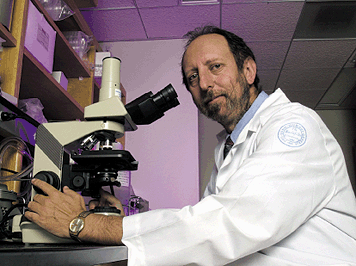Resisting anthraxPrescriptions for Ciproflaxin have been going like hotcakes. This past fall, nearly 30,000 were dispensed to those potentially exposed to anthrax letters. But what if the anthrax sent to the Senate and media outlets had been resistant to Cipro and other antibiotics commonly kept on hand? The illness and death toll could have been much higher.Such a scenario is not so far-fetched, says Keith Klugman, an expert in antibiotic-resistant bacterial infections and professor of international health at RSPH. Reports of Cold War military scientists genetically engineering anthrax to resist antibiotics have been deemed credible, while many old infections are reemerging with the natural ability to resist antibiotics. As the anthrax crisis unfolded, Klugman set to work. He knew that Abbott Laboratories was developing a new class of antibiotics called ketolides to counter infections resistant to erythromycin and other antibiotics. A native South African, he also knew that natural anthrax runs rampant among wild animals such as zebra on the African continent. “The possibility of attack with resistant strains brings a new urgency to the issue,” says Klugman. “Because of the threat, it’s very important for the public health community to know about new drugs under development. Bacteria would more likely resist older drugs, not drugs that hadn’t been discovered when the former USSR was developing its bioarsenal. These new drugs have different mechanisms of action that military scientists would not have prepared against.” Klugman tested ketolides against anthrax from infected patients in Zimbabwe and South African veterinary labs. He found the drugs effective where erythromycin and some other antibiotics failed. His work, funded by Abbott Laboratories, was carried out in cooperation with the National Health Laboratory Service in South Africa. Klugman presented his findings this past December at the 41st Interscience Congress of Antimicrobial Agents and Chemotherapy, organized by the American Society for Microbiology.
Innocence lost
An invisible threat
When disaster stikes
Spring
2002 Issue |
Dean's Message | In
Brief | Innocence Lost | Copyright © Emory University, 2002. All Rights Reserved. Send comments to hsnews@emory.edu. |
